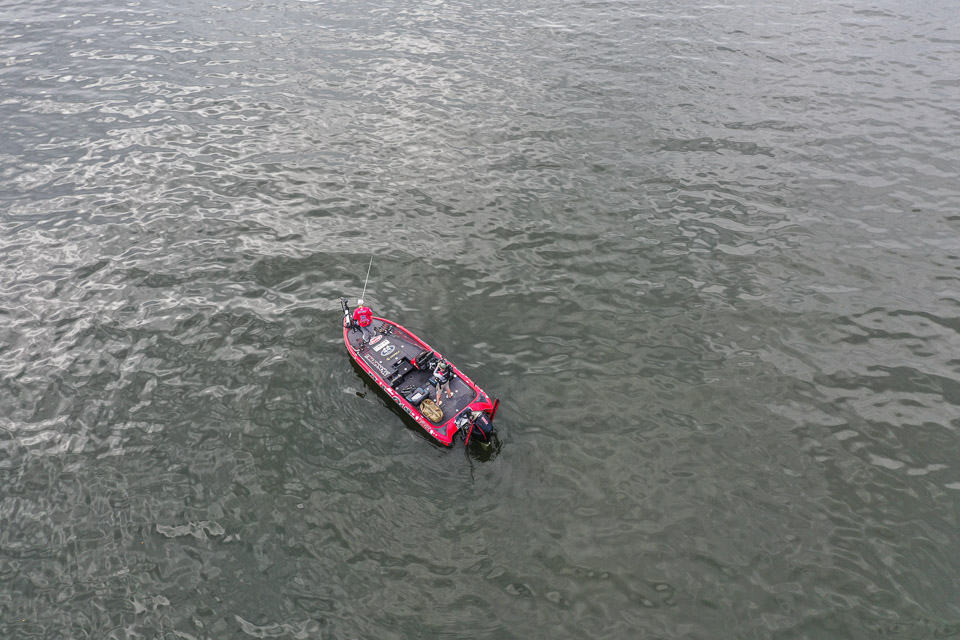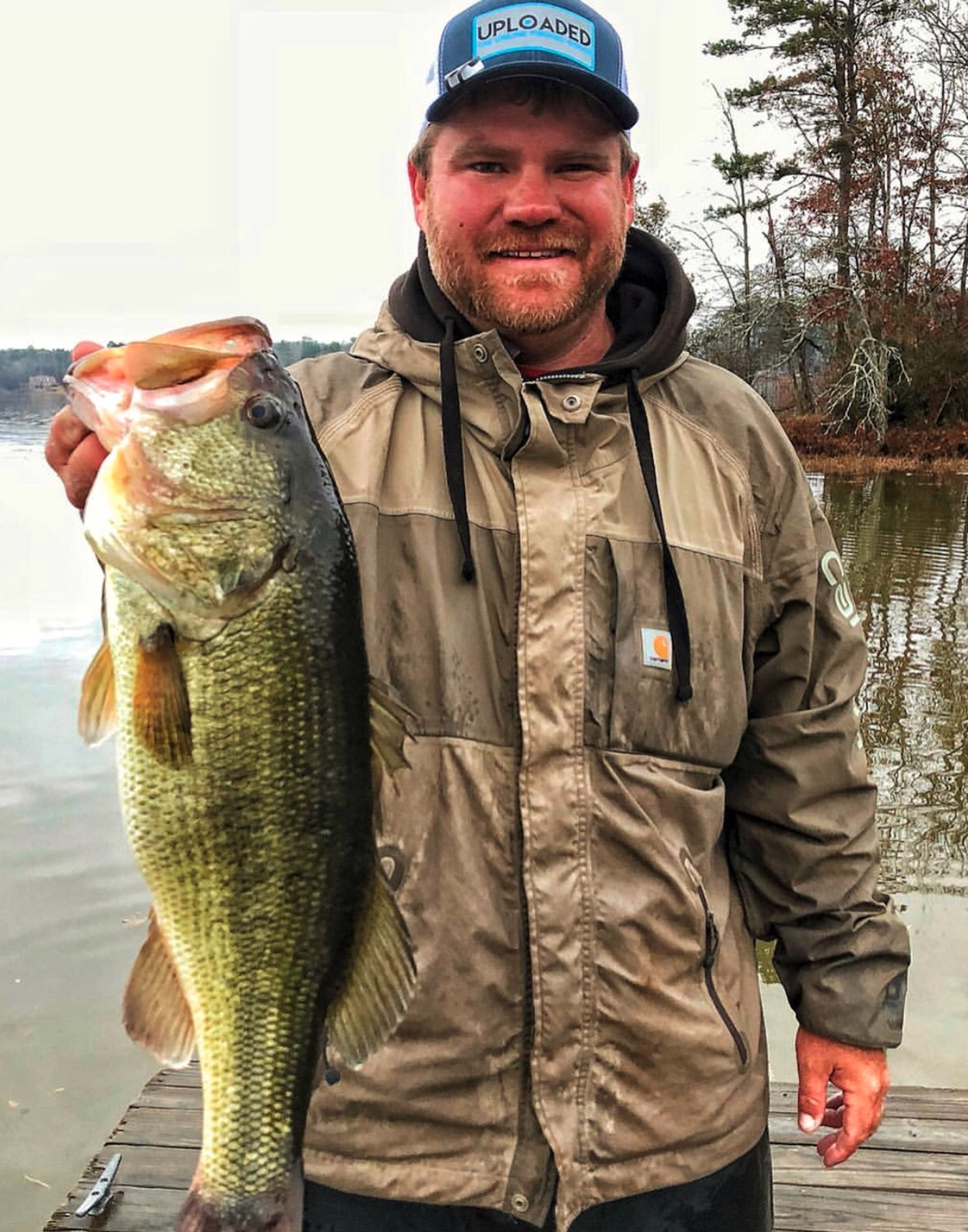
Fishing in a crowd. We’ve heard that phrase time and time again this week on Pickwick in reference to the offshore bite. The advancements in electronics, with the sonar, mapping and the spot locking trolling motors, has made the offshore game something 90% of the anglers can’t ignore anymore. So there’s a lot of boats out there, and they’re fishing in close proximity of one another quite often.
We’ve seen anglers fish offshore for decades. But in its infancy, the offshore deal was a loner’s game. You could get out there and find some fish and have them to yourself, while most of the anglers stayed close to shore. Now, the opposite is true. During that transition form shore to offshore over the last couple decades, we’ve seen a lot of anglers get their feathers ruffled. Watching these big tournaments over the years, I can quickly recall one instance where a guy tried to pull in on a “community hole” and the guy sitting there said, “You ain’t in the community”. Had the intruder not backed down, that interaction would have likely have led to some heightened language and maybe even a physical threat or two.
There have certainly been instances out on the water where the suggestion was made that the two ought to just take it to the bank and sort it out like men. And I recall another instance where and offshore skirmish led to the abrupt end of one angler’s career, when offshore legend Randy Haynes pulled his trolling motor out of Kentucky Lake and took his boat to the ramp after another angler tried to pull up and fish alongside him. Haynes was, at the time, leading after two days of an FLW Tour event.
People used to get their feelings hurt in a hurry offshore. And not without good cause. If an angler were to pullup within 15 feet of another angler on the bank, there would be lots of expletives flying around. So it makes sense that as those bank beaters became displaced offshore, their bank beater mentalities were still engrained into their attitudes towards fishing around other boats.
But it’s different offshore now. All these anglers in their 20s and 30s grew up fishing offshore. There’s a different mood to the offshore deal overall it seems. A dozen times this week we’ve heard of anglers welcoming the company with open arms. Shallow water hammer Matt Herren, a member of the old guard at this point that has zero interest in fishing in a crowd, mentioned this morning how Austin Felix and Bryan New both invited him in to fish a school with them on separate occasions during this tournament. Chad Morgenthaler and Cliff Prince also told similar stories from the weigh-in stage this week, almost surprised by the overwhelming generosity they received offshore from some of the younger guys.
And we’ve seen similar things happen all week. Seth Feider and Chad Pipkens both fishing in close proximity to Brandon Palaniuk at times, in a most congenial way. Just a couple weeks ago on Lake Fork, I watched firsthand as Brandon Palaniuk not only welcomed Drew Cook onto his best spot (which Cook had likely already been fishing on the previous day), but Palaniuk also showed Cook the exact cast to make after firing the fish up.
And we heard yesterday from the weigh-in stage as Carl Jocumsem told the story of how Palaniuk ran by him late in the day, circled back and asked Jocumsen what he had. After Jocumsen’s dismal report of 3 little ones, Palaniuk shouted, “Follow me,” and then Palaniuk led Jocumsen to an offshore hole where they both pulled up and preceded to crush them for the next hour, Jocumsen culling up to 14-5.
Now Palaniuk is a rare breed, and his relationship with Jocumsen is a close one. But there just seems to be a new era arising offshore. The younger anglers that have grownup fishing in a crowd have settled into this new reality, and 9 times out of 10 they just let the stress and frustration of an incoming boat roll right off their backs. It’s a stark contrast to what we’ve seen in the past, as LIVE feeds have had to been cut at times to spare the ears of the viewers from the onslaught of profanity. Now, it’s more like, “Come on in, the water’s fine.”





